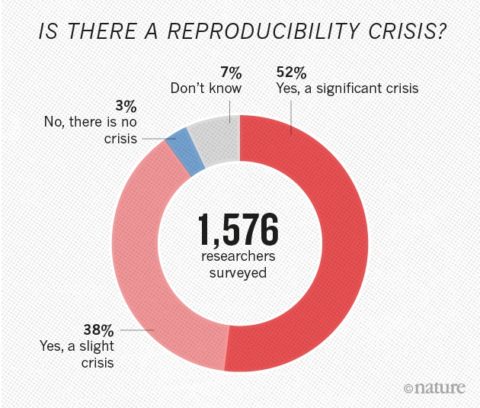pdbass
Published Jan 4, 2024Remember that time Rush worked music from cartoons into one of their greatest recordings?
Digging into “La Villa Strangiato” from 1978’s Hemispheres, breaking down Geddy Lee’s wicked bass solo (and its Jazz connections) and showing you how pianist/composer Raymond Scott will always be linked to this iconic prog rock instrumental.
(more…)
May 19, 2024
Rush Meets LOONEY TUNES???
QotD: Taxation and theft
High-income earners pay a higher rate of tax than people on low incomes. So why is it unfair, as Kim Beazley argues, that high-income earners receive a larger tax cut?
An analogy: your house and your neighbour’s house are both burgled. You lose a television. He loses a DVD player, microwave, his collection of Chomsky memorabilia (it’s an inner-city house), and a unique framed Leunig depicting Mr Curly’s pedophilia arrest. Would it be unfair if police were to return all of this fellow’s belongings, and you were only to get back your 24-inch Sony?
Tim Blair, “Simplistic right-wing greed justification attempted”, Road to Surfdom, 2005-05-12.
[H/T to Samizdata, both for the link and for their title on the post, which I’ve purloined.]
May 18, 2024
The plight of Greek refugees after the Greco-Turkish War
As part of a larger look at population transfers in the Middle East, Ed West briefly explains the tragic situation after the Turkish defeat of the Greek invasion into the former Ottoman homeland in Anatolia:

“Greek dialects of Asia Minor prior to the 1923 population exchange between Greece and Turkey. Evolution of Greek dialects from the late Byzantine Empire through to the early 20th century leading to Demotic in yellow, Pontic in orange, and Cappadocian in green. Green dots indicate Cappadocian Greek speaking villages in 1910.”
Map created by Ivanchay via Wikimedia Commons.
While I understand why people are upset by the Nakba, and by the conditions of Palestinians since 1948, or particular Israeli acts of violence, I find it harder to understand why people frame it as one of colonial settlement. The counter is not so much that Palestine was 2,000 years ago the historic Jewish homeland – which is, to put it mildly, a weak argument – but that the exodus of Arabs from the Holy Land was matched by a similar number of Jews from neighbouring Arab countries. This completely ignored aspect of the story complicates things in a way in which some westerners, well-trained in particular schools of thought, find almost incomprehensible.
The 20th century was a period of mass exodus, most of it non-voluntary. Across the former Austro-Hungarian, Russian and Ottoman empires the growth in national consciousness and the demands for self-determination resulted in enormous and traumatic population transfers, which in Europe reached its climax at the end of the Second World War.
Although the bulk of this was directed at Germans, the aggressors in the conflict, they were not the only victims – huge numbers of Poles were forcibly moved out of the east of the country to be resettled in what had previously been Germany. The entire Polish community in Lwów, as they called it, was moved to Wrocław, formerly Breslau.
Maps of central and eastern Europe in the 19th century would have shown a confusing array of villages speaking a variety of languages and following different religions, many of whom wouldn’t have been aware of themselves as Poles, Romanians, Serbs or whatever. These communities had uneasily co-existed under imperial rulers until the spread of newspapers and telegraph poles began to form a new national consciousness, usually driven by urban intellectuals LARPing in peasant fantasies.
This lack of national consciousness was especially true of the people who came to be known as Turks; the Balkans in the late 19th century had a huge Muslim population, most of whom were subsequently driven out by nationalists of various kinds. Many not only did not see themselves as Turks but didn’t even speak Turkish; their ancestors had simply been Greeks or Bulgarians who had adopted the religion of the ruling power, as many people do. Crete had been one-third Muslim before they were pushed out by Greek nationalists and came to settle in the Ottoman Empire, which is why there is still today a Greek-speaking Muslim town in Syria.
This population transfer went both ways, and when that long-simmering hatred reached its climax after the First World War, the Greeks came off much worse. Half a million “Turks” moved east, but one million Greek speakers were forced to settle in Greece, causing a huge humanitarian crisis at the time, with many dying of disease or hunger.
That population transfer was skewed simply because Atatürk’s army won the Greco-Turkish War, and Britain was too tired to help its traditional allies and have another crack at Johnny Turk, who – as it turned out at Gallipoli – were pretty good at fighting.
The Greeks who settled in their new country were quite distinctive to those already living there. The Pontic Greeks of eastern Anatolia, who had inhabited the region since the early first millennium BC, had a distinct culture and dialect, as did the Cappadocian Greeks. Anthropologically, one might even have seen them as distinctive ethnic groups altogether, yet they had no choice but to resettle in their new homeland and lose their identity and traditions. The largest number settled in Macedonia, where they formed a slight majority of that region, with many also moving to Athens.
The loss of their ancient homelands was a bitter blow to the Greek psyche, perhaps none more so than the permanent loss of the Queen of Cities itself, Constantinople. This great metropolis, despite four and a half centuries of Ottoman rule, still had a Greek majority until the start of the 20th century but would become ethnically cleansed in the decades following, the last exodus occurring in the 1950s with the Istanbul pogroms. Once a mightily cosmopolitan city, Istanbul today is one of the least diverse major centres in Europe, part of a pattern of growing homogeneity that has been repeated across the Middle East.
But the Greek experience is not unique. Imperial Constantinople was also home to a large Jewish community, many of whom had arrived in the Ottoman Empire following persecution in Spain and other western countries. Many spoke Ladino, or Judeo-Spanish, a Latinate language native to Iberia. Like the Greeks and Armenians, the Jews prospered under the Ottomans and became what Amy Chua called a “market-dominant minority”, the groups who often flourish within empires but who become most vulnerable with the rise of nationalism.
And with the growing Turkish national consciousness and the creation of a Turkish republic from 1923, things got worse for them. Turkish nationalists and their allies murdered vast numbers of Armenians, Greeks and Assyrian Christians in the 1910s, and the atmosphere for Jews became increasingly tense too, with more frequent outbursts of communal violence. After the First World War, many began emigrating to Palestine, now under British control and similarly spiralling towards violence caused by demographic instability.
Glory Days of the Kamikaze! – Operation Kikusui
World War Two
Published 17 May 2024During the Battle of Okinawa, the Japanese see the opportunity to cripple the core of the Allied navies. With their conventional air and naval forces unable to challenge the Allies, the Japanese unleash a wave of mass Kamikaze attacks. Hundreds of suicide pilots smash their aircraft into the Allied fleet. This is Operation Kikusui.
(more…)
HMS Victory: Returning Nelson’s flagship to her former glory
Forces News
Published Feb 10, 2024HMS Victory is undergoing a massive restoration and conservation programme costing around £45m.
Lord Nelson’s flagship at the Battle of Trafalgar is being stripped right back and having all the rotten wood removed.
Forces News was given exclusive access to the ship, preserved for all to enjoy at the National Museum of the Royal Navy in Portsmouth, to see the progress that’s being made.
(more…)
QotD: Academic research and the “phantom cite”
If you’ve done any academic work at all, in any field — scratch that, if you’ve done any competent, diligent work in any field — you’ve experienced the frustration of the “phantom cite”. This is where you see a startling assertion in Jones. You check his footnote — see Smith. You go pull Smith off the shelves, and his footnote says “see Williams”. Williams cites Parker, Parker cites Adams, Adams cites Rogers, until finally, you pull Rogers and … nothing. Not the “oh gosh, I’d have to travel to the British Museum to check this, and it’s in Medieval High Bulgarian anyway” kind of nothing, but the bald-ass assertion kind of nothing.
Happens all the time. There are a couple of reasons for this. Being as charitable as I possibly can, I’m going to call one “survivorship bias”. I’m sure you’ve seen this … Since, again, we’re being extremely charitable here, this isn’t actually a case of “just tell ’em what they want to hear”. I’ll illustrate from my own research experience. My dissertation asserts that General Ripper, commander of the 43rd Imaginary Infantry in Au Phuc Dup province, Republic of Vietnam, was convinced that the local provincial governor, Long Duc Dong, was a Communist infiltrator. Now, this is a 100% true fact, that Gen. Ripper believes Long Duc Dong is a Communist. Armies are awash in paperwork, and moreover Gen. Ripper was an obsessive letter-writer and diarist, so you can find hundreds if not thousands of citations stating it directly: “I, Gen. Ripper, believe that Long Duc Dong is a Communist”.
Which explains quite a bit about why Gen. Ripper made the decisions he did, which in turn is why this 100% indisputably true fact — that Gen. Ripper thought Long Duc Dong was a Communist — features so prominently in that study of the dynamics of command in the 43rd Imaginary Infantry.
The problem, though, is that some other historian comes along, looking at something very different — say, the effectiveness of anti-Communist propaganda in the IV Corps operational area — and comes across my dissertation. From this, he writes “So ineffective was the anti-Communist propaganda campaign that even the governor, Long Duc Dong, was strongly suspected of being a Communist infiltrator”. And from that, another historian, looking for the prevalence of pro-Communist sentiment, concludes that “despite the Americans’ best efforts, the extreme south of the RVN was so thoroughly indoctrinated that even the Governor, Long Duc Dong, was a Communist”.
Now, all of that is true except for the last bit. It is not, in fact, proven that Long Duc Dong was a Communist. Gen. Ripper sure thought he was. And Gen. Ripper continued to think so, even after the anti-Communist propaganda campaign, which means that the campaign indisputably failed in Long Duc Dong’s case — he carried on acting like enough of a commie to keep Gen. Ripper’s suspicions up. But thanks to the thicket of citations, it’s the last bit — the assertion that Long Duc Dong was, indisputably, a Communist — that has by far the most footnotes attached to it. Hell, the footnotes probably cite all the same things I did — the truckloads of letters and documents from Gen. Ripper saying “Damn that Long Duc Dong, he’s a Communist!!”
That’s because he lifted them straight from my dissertation, all impeccably footnoted — by which is meant, giving ME full credit — and do you see what I mean? None of the historians involved had any obvious axe to grind, no viewpoint to push. It’s just that everyone’s bibliography is a hundred pages long, and nobody has the time to read every page of every book in those hundred pages. Jones just skimmed Smith’s index, looking for names of commies. Smith did the same thing with my index, of course, in which he found “Dong, Long Duc, Communist sympathies of,” with dozens of page numbers referenced.
Severian, “‘Studies'”, Rotten Chestnuts, 2021-05-22.
May 17, 2024
“Once a mind is infected with Climate Change, bioweapons are just another kind of carbon credit”
Jo Nova presents evidence of a university professor — a vulcanologist — who perhaps has more sympathy for the volcanoes he studies than the human race:
Let’s just say, hypothetically, that someone wanted an excuse to reduce global population, or limit competing tribes and religions, there’s a scientific hat for that. Climate Change is the ultimate excuse for mass death — done in the nicest possible way and for the most honorable of reasons. But isn’t that what they all say: Jim Jones, the Branch Davidians, Heavens Gate — death makes the world a better place?
The cult that pretends it isn’t a cult sells itself as “science”. I mean, what the worst thing you can think of? Would that be one degree of warming, or the Black Death?
In Bill McQuire’s mind the catastrophe is not when billions of innocent people die.
One hundred years from now, what would our great grandchildren prefer: that the world was slightly cooler or they were never born at all? If you hate humans it’s a terrible dilemma …
Bill McGuire, vulcanologist, accidentally put his primal instincts in a tweet last weekend:
Thirty years of telling us that humans are bad has consequences. As Elon Musk said” They want a holocaust for humanity.” It turns out a televised diet of one-sided climate projection by mendicant B-Grade witchdoctors might be a dangerous thing for mental health. If only Bill McQuire had seen a skeptic on TV?
Predictably the McGuire tweet spread far, and got crushing replies so the Emeritus Professor deleted it, as all cowards do, yelling at us:
Lies my teacher taught me
A Peel District School Board teacher using the pseudonym “Igor Stravinsky” explains the sort of indoctrination high school students are receiving about First Nations and the development of Canada:
Previously in this series, I have discussed some of the things students are learning, and not learning, about Indigenous people in the Peel District School Board:
- Indigenous people are the true owners of the land; the rest of us are just settlers
- Indigenous people should be able to continue to practice their traditional ways while being provided all the amenities commensurate with living in a modern, first world country
- Indigenous people are victims, other Canadians are oppressors
- The disproportionately poor quality of life which characterizes the lives of many Indigenous people today is the result of past and current injustices by non-Indigenous people, chiefly the Indian Residential Schools
- Life was good for Indigenous people, who were wise and peaceful, before Europeans showed up
- The goal of the Europeans who arrived in Canada was the genocide of Indigenous people
- The settlers failed in their quest for genocide due to the courage and resilience of the Indigenous people
As I have demonstrated, all of the above is simplistic, misleading, or false.
Why teach students a false narrative?
The ahistorical Indigenous genocide narrative started out in academia where Grievance Studies (Indigenous Studies, Black Studies, Queer Studies, Fat Studies, etc.) have a massive presence. These post-modernist inspired programs, collectively referred to as “Critical Theory” have influenced all areas of academia and spread to Canadian institutions generally. Grievance studies programs can only exist so long as there are grievances, which necessitates re-writing history and putting people into oppositional groups of victims and oppressors. Academics had to either get on the bandwagon or keep their mouth shut if they disagreed with this new paradigm. Those who did not, such as Frances Widdowson, were attacked and paid a massive price for speaking freely about the lies on which grievance studies programs are based.
Left-leaning politicians have been keen to get on board with Critical Theory. It wins them support from the academics and well-meaning (but poorly informed) members of the public who want to be “on the right side of history”. Even conservative politicians tend to look the other way, seeing taking on the well-organized, well-funded, academia-based activists as an overall vote loser. After all, they can count on the conservative vote. To whom else can such voters turn? Consequently, school boards and the authors of school curricula are captured by Critical Theory and teachers are expected to tow the line. Anyone who doesn’t is said to be “causing harm” and faces harsh discipline.
Entrenchment of the Indigenous genocide narrative ensures ever increasing payments from Canadian taxpayers in the form of rent and compensation. The lion’s share of these payments go to the Grievance Industry Tzars- Corrupt Indigenous leaders and their non-Indigenous allies, with little trickling down to the average Indigenous person. That is why, in spite of the fact that an ever-increasing part of our federal budget is dedicated to payments to Indigenous groups (to reach 7.7% – $74.6 billion annually by 2026-27), many Indigenous people live in squalor on reserves without basic amenities like clean water, while many others live on the street in urban areas. How can this be happening when taxpayers are handing over more than $40 thousand per year per each Indigenous person?
Is it reasonable for people who want to live in remote areas engaged in low value hunting, gathering, and horticulture activities, declining to integrate into the modern Canadian socio-economic system, to expect 21st century amenities and services paid for by other Canadians? If non-Indigenous people balk at funding this economically unviable mode of existence, does that make us guilty of racism or genocide? That is the impression kids in school are left with after the “education” they receive on the matter.
Canada Post is in deep, deep trouble
I was vaguely aware that Canada Post has been in financial difficulties for a while, but I had no idea things were quite this dire:
You’d better believe that the Canada Post Corporation is in very deep trouble. Here’s how they phrased it in their 2023 annual report:
Canada Post’s financial situation is unsustainable.
“Unsustainable”. Well that doesn’t sound good. Think they’re just putting on a show to carve out a better negotiating position? Well, besides for the fact that they’re not currently negotiating with anyone, the numbers do bear out the concern:
For 2023, the Corporation recorded a loss before tax of $748 million, compared to a loss before tax of $548 million in 2022. From 2018 to 2023, Canada Post lost $3 billion before taxes. Without changes and new operating parameters to address our challenges, we forecast larger and increasingly unsustainable losses in future years.
In other words, it’s madly-off-in-all-directions panic time.
Hey! You know I can hear your condescending sniff: “I’m sure this is just a temporary disruption. They’ll figure out how to fix the leak and get themselves back on the road like always. They’re too big to fail.”
Yeah … not this time. The competition from digital communications (i.e., the internet), FedEx, and UPS isn’t going anywhere. Letter delivery nosedived from nearly 5.5 billion pieces in 2006 to just 2.2 billion in 2022. And vague references to “major strategic changes to transform our information technology model” don’t sound much like magic bullets for reversing the decline.
But Canada Post’s labour and pension costs sure are marching bravely forward. In fact, if it wasn’t for Parliamentary relief in the form of Canada Post Corporation Pension Plan Funding Regulations, the Corporation would have had to pay $354 million into the pension plan in 2023 alone. But that $354 million — plus whatever additional amounts show up in 2024 and besides the $998 million in existing general debt — are still liabilities that’ll eventually need paying.
Deviled Bones – The History of Hot Wings
Tasting History with Max Miller
Published Feb 6, 2024[Information from the Tasting History page for this video]
Chicken wings tossed in a spicy, complex sauce featuring mushroom ketchup.
The history of hot wings goes much further back than 1964 in Buffalo, New York, as a Google search might have you believe. Deviled bones were a way to use up undesirable chicken wings for centuries before that, calling for leftover cooked joints that still had some meat on them (the bones), and flavorful spices (deviled).
If you’re not a lover of spicy things, like me, then the 1/4 teaspoon of cayenne is plenty. That said, feel free to adjust the amounts of any of the spices to suit your taste. I was afraid that the mustard would be overpowering, but it isn’t. The flavor is complex and full of umami thanks to the mushroom ketchup. This is an easy recipe to do some prep work the day before, as the wings would have originally been leftovers.
Devilled Bones
Take the bones of any remaining joint or poultry, which has still some meat on, which cut across slightly, and then make a mixture of mustard, salt, cayenne, and pepper, and one teaspoonful of mushroom ketchup to two of mustard; rub the bones well with this, and broil rather brownish.
— A Shilling Cookery for the People by Alexis Soyer, 1854.
May 16, 2024
The replication crisis and the steady decline in social trust
Theodore Dalrymple on the depressing unreliability — and sometimes outright fraudulence — of far too high a proportion of what gets published in scientific journals:
Until quite recently — I cannot put an exact date on it — I assumed that everything published in scientific journals was, if not true, at least not deliberately untrue. Scientists might make mistakes, but they did not cheat, plagiarise, falsify, or make up their results. For many years as I opened a medical journal, the possibility simply that it contained fraud did not occur to me. Cases such as those of the Piltdown Man, a hoax in which bone fragments found in the Piltdown gravel pit were claimed to be those of the missing link between ape and man, were famous because they were dramatic but above all because they were rare, or assumed to be such.
Such naivety is no longer possible: instances of dishonesty have become much more frequent, or at least much more publicised. Whether the real incidence of scientific fraud has increased is difficult to say. There is probably no way to estimate the incidence of such fraud in the past by which a proper comparison can be made.
There are, of course, good reasons why scientific fraud should have increased. The number of practising scientists has exploded; they are in fierce competition with one another; their careers depend to a large extent on their productivity as measured by publication. The difference between what is ethical and unethical has blurred. They cite themselves, they recycle their work, they pay for publication, they attach their names to pieces of work they have played no part in performing and whose reports they have not even read, and so forth. As new algorithms are developed to measure their performance, they find new ways to play the game or to deceive. And all this is not even counting commercial pressures.
Furthermore, the general level of trust in society has declined. Are our politicians worse than they used to be, as it seems to everyone above a certain age, or is it that we simply know more about them because the channels of communication are so much wider? At any rate, trust in authority of most kinds has declined. Where once we were inclined to say, “It must be true because I read it in a newspaper”, we are now inclined to say, “It must be untrue because I read it in a newspaper”.
Quite often now I look at a blog called Retraction Watch which, since 2010, has been devoted to tracing and encouraging retraction of flawed scientific papers, often flawed for discreditable reasons. Such reasons are various and include research performed on subjects who have not given proper consent. This is not the same as saying that the results of such research are false, however, and raises the question of whether it is ethical to cite results that have been obtained unethically. Whether it is or not, we have all benefited enormously from past research that would now be considered unethical.
One common problem with research is its reproducibility, or lack of it. This is particularly severe in the case of psychology, but it is common in medicine too.
The Canadian Senate is an anti-democratic fossil … that might totally frustrate a future Conservative government
Tristin Hopper considers the constitutional weirdness of Canada’s upper house, an appointed body that has the power to block a popularly elected House of Commons:

“In the east wing of the Centre Block is the Senate chamber, in which are the thrones for the [King and Queen], or for the federal viceroy and his or her consort, and from which either the sovereign or the governor general gives the Speech from the Throne and grants Royal Assent to bills passed by parliament. The senators themselves sit in the chamber, arranged so that those belonging to the governing party are to the right of the Speaker of the Senate and the opposition to the speaker’s left. The overall colour in the Senate chamber is red, seen in the upholstery, carpeting, and draperies, and reflecting the colour scheme of the House of Lords in the United Kingdom; red was a more royal colour, associated with the Crown and hereditary peers. Capping the room is a gilt ceiling with deep octagonal coffers, each filled with heraldic symbols, including maple leafs, fleur-de-lis, lions rampant, clàrsach, Welsh Dragons, and lions passant. On the east and west walls of the chamber are eight murals depicting scenes from the First World War; painted in between 1916 and 1920”
Photo and description by Saffron Blaze via Wikimedia Commons.
By the anticipated date of the 2025 federal election, only 10 to 15 members of the 105-seat Senate will be either Conservative or Conservative appointees. The rest will be Liberal appointees. As of this writing, 70 senators have been personally appointed by Trudeau, and he’ll likely have the opportunity to appoint another 12 before his term ends.
What this means is that no matter how strong the mandate of any future Conservative government, the Tory caucus will face a Liberal supermajority in the Senate with the power to gut or block any legislation sent their way.
“If a majority of the Senate chose to block or severely delay a Conservative government’s legislative agenda, it would plunge the country into a constitutional crisis the likes of which we have not seen in more than a century,” reads an analysis published Tuesday in The Hub.
Constitutional scholars Howard Anglin and Ray Pennings envisioned a potential nightmare scenario in which the Senate casts themselves as “resisting” a Conservative government. Given that senators are all permanently appointed until their mandatory retirement at age 75, it would take at least 10 years until a Conservative government could rack up enough Senate appointments to overcome the Liberal-appointed majority.
“Canadian politics would grind to the kind of impasse that is only broken by the kind of extraordinary force whose political and social repercussions are unpredictable,” they wrote.
The piece even makes a passing reference to 1849, when mobs burned down Canada’s pre-Confederation parliament.
The prospect of an all-powerful Senate able to block the mandate of an elected government is a legislative situation almost entirely unique to Canada.
New Zealand abolished its Senate and is now governed by a unicameral legislature. Australia and the United States both employ term-limited elected senates. The U.K. House of Lords – on which the Canadian Senate is closely modelled – is severely constrained in how far it can check the actions of the House of Commons.
But in Canada, the Senate essentially retains the power of a second House of Commons; it can do whatever it wants to legislation that has passed the House of Commons, including spike it entirely.













